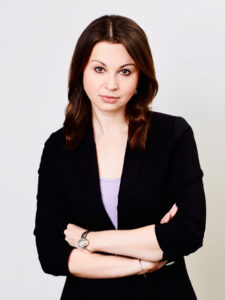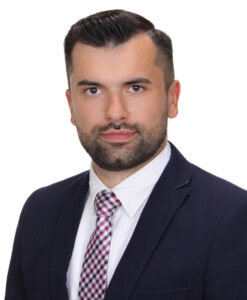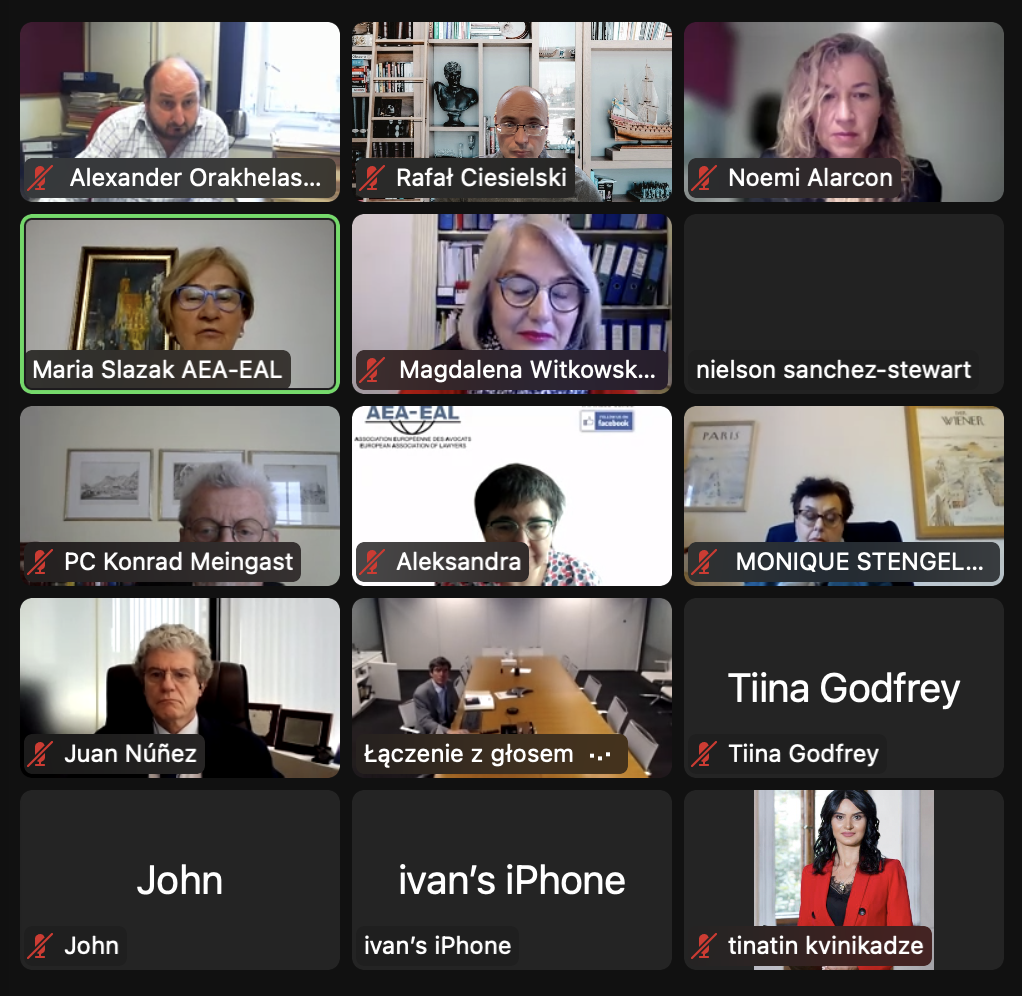Mediation Webinar – 27 April at 12.00 (CET)
The next Mediation Webinar is taking place this Wednesday. Register for free:
[fluentform id=”7″]

The next Mediation Webinar is taking place this Wednesday. Register for free:
[fluentform id=”7″]

Dear Friends,
Our General Assembly is taking place on 15 – 16 May! You can find all the necessary information below. For registration please download the form, fill it in on your computer/ mobile and send it back to office@aea-eal.eu.
Registration form for download (in English and French)

Dear Friends,
Best wishes and all the best for Easter. Let this time be full of joy for all of you, your families and your friends!
—
Chers Amis,
Meilleurs voeux et tout le meilleur pour Pâques. Que ce temps soit plein de joie pour vous tous, vos familles et vos amis!
—
Дорогі друзі,
Найкращі побажання та всього найкращого на Великдень. Нехай цей час буде сповнений радості для всіх вас, ваших сімей та друзів!
—
Дорогие друзья,
Наилучшие пожелания и всего наилучшего на Пасху. Пусть это время будет радостным для всех вас, ваших близких и друзей!
The Center for Coordination of Legal Aid was established to provide pro bono legal aid to people affected by the war in Ukraine. We operate through a nationwide call center and through legal information points located throughout the country. Assistance in solving legal problems is provided by volunteer experts: attorneys-at-law, advocates and representatives of all legal professions and associations as well as NGO lawyers.
As part of the Center, the National Bar Association of Attorneys-at-law coordinates cooperation between 19 regional bars association of attorneys-at-law and other legal associations. Lawyers work together to help those affected by the war in Ukraine. Thanks to the initiative of the National Bar Association of Attorneys-at-law, the largest coalition of legal associations supporting people in need who came to Poland after the outbreak of war was created.
The Center will continue to operate as long as Ukrainians seeking a safe haven in Poland need legal aid.
We can help with the following:
 Works of the Center for Coordination of Legal Aid are coordinated by attorney-at-law Magdalena Bartosiewicz, member of the Commission for Foreign Affairs and Human Rights at the Warsaw Bar of the Attorneys-at-Law.
Works of the Center for Coordination of Legal Aid are coordinated by attorney-at-law Magdalena Bartosiewicz, member of the Commission for Foreign Affairs and Human Rights at the Warsaw Bar of the Attorneys-at-Law.
Visit the Center’s website: prawnicyukrainie.pl
Threats to human rights are always a massive challenge for societies, but above all for lawyers, who are defenders and those on the front line of a fight to protect rights and liberties. Particularly nowadays in Poland lawyers undertake massive actions to help our Ukrainian friends. You may read the information on actions performed by the Polish National Bar of Attorneys-at-law below. But lawyers must also act in cases that are against public opinion. That was the case when European lawyers helped refugees on the Greek islands during the 2015 migration crisis. The same issue was repeated last year when Polish lawyers stood for the rights of migrants and refugees used by the Belorussian regime to destabilise the Polish Eastern border. We strongly encourage you to read the below interview with lawyers from the Białystok Bar of Attorneys-at-Law engaged in legal aid for people stuck between Belarus and Poland.



We simply did not consider any other possibility. Protecting human rights is the essence of our craft, and it applies equally to a resident of the border town of Grodek as it does to a foreigner crossing the border illegally. To a certain extent, this decision was also influenced by the specifics of my practice, which is primarily concentrated in border areas (and this translated into a pretty good grasp of the situation – significantly different from that apparent from the limited media coverage). We were also fortunate to meet people very involved in the work of the Border Group quite early on.
The assistance has proved to be multi-faceted. Contrary to popular belief, it does not consist of wandering through the forest searching for people who are then handed power of attorney to represent them before the competent authorities. We are taking a very subjective approach to people caught up in the current border crisis. And it has to be said that they often did not want to be assisted. Therefore, these are activities in direct contact with foreigners, such as explaining: procedures, legal situations, and possible courses of action. But representation in cases with direct contact is significantly more complex (also due to the epidemic) before the Border Guard, the Office for Foreigners, and the Courts. Finally, it also included applying to the European Court of Human Rights with complaints and requests for interim measures.
We focused on ensuring that refugees can enter the procedure related to granting international protection. It turned out – as in 2015 – that this is usually very difficult, if not unrealistic, due to the policy of intensive use of the procedure referred to in Article 303b of the Aliens Act (push back) and unjustified refusal to accept applications for protection by Border Guard officers – even at border crossings (vide the Kuźnica case). Such a choice of priorities turned out to be particularly important in winter when even a short stay in the forest posed a real threat to health and led to the loss of life by foreigners in a dozen or so cases. Therefore, we quickly noticed that the procedures described in the law do not work or work in a way that significantly limits foreigners’ rights. We began the practice of applying to the European Court of Human Rights in Strasbourg for an interim measure that the Court may order under Rule 39 of its Rules of Procedure before a formal complaint is filed. I can say that this is currently the only legal measure that suspends (and de facto excludes) the possibility of applying the legally and ethically questionable so-called push back procedure described in Article 303b of the Aliens Act (introduced into the legal order on 26 October 2021)
We are working with the 'Border Group’, which is probably a well-known informal group of NGOs currently involved on the border. It is striking to see the picture of the group that is painted in the mass media favourable to the authorities. On Friday (4 February 2022), We read in one of the articles that it is an „anti-government organisation”. Such a narrative has nothing to do with the subject of activity of the affiliated organisations and independent activists.
Our cooperation evolved as the crisis at the border continued. The first engagement period – August / September 2021 – consisted of providing legal advice to people active in these organisations and assisting in formulating letters to public administration bodies. With time, it was more structured work accepting specific cases (including administrative and court cases) for legal services. Cooperation in coordinating the collection of information and sending applications to the European Court of Human Rights on their basis and then providing refugees with a formal opportunity to apply for protection is crucial. Sometimes I use analyses prepared by migration specialists working for these organisations (e.g., information on the situation in a particular country of origin of foreigners).
If we talk about the procedure in specific cases, including direct contact with the officers in charge, we cannot, in general, have reservations. In principle, personal communication at branch offices or access to clients apprehended by border guards has not been obstructed (we ignore the COVID-19-related conditions). There have been instances of obstruction by officers, but we believe this was due to a lack of relevant training rather than a lack of friendliness.
The evaluation of our work, however, sometimes varied. But even when there were attempts to question the attorney’s role (most often, it concerned the circumstances of granting a power of attorney), a calm conversation and argumentation made it possible to come to a constructive agreement.
A big problem has emerged 'on the ground’. The current crisis has shown, in our opinion, cases of insufficient preparation of officers for service. There were cases of unjustified stops and searches of a vehicle (outside the zone of emergency), questioning the authority to act on behalf of clients (asking the powers of attorney granted). There were also cases of refusal to inform the defence counsel about the date of a detention hearing (more than once, it was necessary to obtain information by calling the criminal division of courts, which, due to the brief period for consideration of motions, significantly hindered the work of the defence counsel).
The soldiers of the Territorial Defence Forces are a different category. We all know cases where physical force has been used against journalists and activists. Often, these are people who do not have any legal training, which is no excuse. It can be said that there was no cooperation with this formation.
Despite this dominant attitude in society, it must be admitted that it did not affect the local perception of our work. Such an attitude was not noticeable. On the contrary, we had the impression that our activities were met with understanding among the inhabitants of our region. It should be borne in mind – and we raise this issue quite often – that the work of attorneys on behalf of foreigners is just as legitimate as the work carried out on a day-to-day basis within the framework of practice in other cases. Its essence is the daily fight for human rights. We perceive the dissenting voices as misunderstanding the essence of human rights and as an expression of succumbing to the propaganda spewed by the government and its sympathetic media. In any case, they did not and could not influence our actions. It may also be that the public perception does not consider the perception of the situation by the border communities. In our opinion, they are secondary victims of the situation on the border. This is for the simple reason that local people witness what is happening here. They do not rely on the often misleading media reports. Leaving aside the drama at the border, during the state of emergency, all restrictions and bans have de facto fallen on the shoulders of these communities. This public perception mentioned in the question has, in any case, not influenced our actions.
Our activities are essentially local, but they address a global problem. The problem of migration sensu largo is one of the larger ones already part of our lives. However, I have doubts whether it has penetrated wider consciousness. Perhaps this is because the Polish Government could have resolved the recent events on the Polish-Belarusian border humanely with no small problem. We have heard statements by members of the government that we are prepared to accept much larger numbers of migrants from Ukraine in the event of a conflict in the east. On the occasion of the previous wave of migration from Africa in 2015, the Commander-in-Chief of the Border Guard, General Dominik Tracz, said that his subordinate formation had experienced the migration from Chechnya and was prepared to receive a large number of refugees at the state border. In January 2014, in connection with the previous Ukrainian crisis, the Ministry of Interior instructed the Border Guard and the Office for Foreigners to prepare and update an action plan on an ongoing basis in case of mass migration of Ukrainian citizens to Poland. A year later, the Office for Foreigners registered 12,325 applications for international protection. The data for 2021 has not yet been made available, but the government estimated the number of refugees attempting to cross the border with Belarus at around 10,000. All of this indicates that it was possible to register and process applications for protection for every person who crossed the border with Belarus or prevents the tragedies that have occurred there in recent months. It seems that it was only as a result of cynical political calculation that the authorities took the path of creating a threat and introduced, to put it mildly, a legally questionable and certainly inadequate institution of push-back (Article 303b of the Act on Foreigners).
Recent experience should serve as a warning and a lesson to be learned. Professional representatives have a crucial role to play here. Our activity is becoming a factor in its own right in curbing the temptations of populist power. At present, international cooperation of attorneys is necessary in the case of sporadic attempts to transfer the procedure for granting protection to another Member State.
Entities included in the groups are Nomada Association, Association for Legal Intervention, Homo Faber, Polish Migration Forum, Helsinki Foundation for Human Rights, Salam Lab, Open House, Halina Nieć Legal Aid Centre, CHLEBEM I SOLĄ, refugees.info, RATS Agency, Kuchnia Konfliktu, Strefa WolnoSłowa, Przystanek „Świetlica” for refugee children, Egala Association.
Registration for the course is now closed!
In April and May, a group of our members and colleagues will participate in the HELP online training on practical aspects of lawyer’s deontology. With this project, we are enhancing our contacts with the European Young Bar Association (EYBA), initiated in 2019. Some EYBA members are joining the training as well.
The HELP online course covers interactively the key concepts and principles, the International and European (CoE and EU) framework, as well as the relevant case-law of the European Court of Human Rights (ECtHR) and the Court of Justice of the European Union (CJEU). It aims to deepen the knowledge and understanding of professional tools and develop reflective skills based on practical examples, to address ethical dilemmas in professional duties. This course is thought to help professionals understand the purpose and importance of ethics in the administration of justice for the benefit of the people, allowing them to identify key concepts and understand common values, ethical principles and virtues.
The course consists of 2 general modules on Introduction, and International and European Framework, as well as 3 specific modules for judges, prosecutors and lawyers, respectively:
• Why do professional ethics matter?
• Common values and principles
• Key concepts
• Distinction between ethical principles and disciplinary rules. International and European Framework
• Treaty norms: United Nations, Council of Europe, European Union, Professional bodies
• Tools Ethics for Lawyers
• General principles
• Relation with other parties
• Values
• Tools
• Practical examples
The launch event will be held online, by web conference. Its main goal is to introduce participants to the Council of Europe HELP Platform, on which the course will be subsequently implemented and followed by the participants with the assistance of two experienced HELP tutors: Vladimir Palamarciuc and Michaela Chladekova.
The introductory session is taking place on 28 April 2022 (14.00-17.00 CET)

It was a special event organized by the European Association of Lawyers in the context of the ongoing war against Ukraine. AEA-EAL President Maria Ślązak greeted all participants and in her welcoming remarks noted that the war against Ukraine is an unprecedented situation since World War II, imposing serious threats to the human rights, peace and stability in Europe. The speakers: Noemí Alarcón Velasco, Lawyer, Chair of the Migration Committee of the Council of Bars and Law Societies of Europe (CCBE), Professor Marcin Górski, Lawyer, Assistant Professor at the Law Faculty of the University of Łódź, and Doctor Alexander Orakhelashvili, Birmingham Law School of the University of Birmingham, agreed that the aggression initiated by President Putin is an attack on fundamental principles of democracy and a clear violation of international law, including the Charter of the United Nations, the Charter of Paris for a New Europe, OSCE Charter for European Security, and the Budapest Memorandum on Security Assurances. Universally recognized law clearly prohibits the use of force or threat of its use in international relations except for self-defence or acting based on the resolution of the UN Security Council. Both exceptions are not applicable in this context. But also several international conventions on humanitarian law are violated by conducting war against civilians, cities, and non-military facilities resulting with destroying of residential areas, hospitals, or water supply networks. Military actions toward the Ukrainian people caused the biggest humanitarian crisis in Europe since World War the Second. As of March 28, almost seven million people were forced to abandon their homes, while almost four million refugees crossed the Western borders of Ukraine. The societies of neighbouring countries, namely Hungarians, Moldovans, Poles, and Romanians undertook huge efforts to welcome exiles, while the EU institutions and states introduces several legal instruments as well as undertaken other actions to answer the crisis. Doctor Nielson Sanchez Stewart, Lawyer, School of Legal Practice of the Bar Association of Málaga, member of the Board of our Association and main initiator of this event made a summary of the webinar noting that it is our common responsibility to undertake all efforts to stop the war and to help its victims. The event was moderated by Doctor Rafal Ciesielski, the AEA-EAL correspondent member.
We were expecting also an address from a special guest and a great friend of the European legal community, Andriy Kostin, member of the Ukrainian Parliament (Verkhovna Rada), Chair of the Legal Policy Committee, lawyer, former deputy chair of the Odesa Bar Council, and Head of Odesa Human Rights Intake Center. However, on the day of the webinar Andryi was a member of the Ukrainian State Delegation conducting talks with the Russian counterparts in Turkey and could not connect with us this time.
With huge regret, we inform you that Dariusz Sałajewski passed away last Monday.
Dariusz was the President of the Polish National Bar of Attorneys-at-law in 2013 – 2016. Earlier, he served as Vice-President, Chair of the Centre for Research, Studies and Legislation of the Bar, and long-lasting member of its Council. Dariusz Strongly supported the international activity of Polish attorneys-at-law for many years. In 2015 he co-hosted the Plenary Session of the Council of Bars and Law Societies of Europe (CCBE) in the historic BHP-Hall in Gdańsk Shipyard. Thanks to his support, the Bar conducted yearly common events of the AEA-EAL and the local bars in Poland. We express our sincere condolences to Dariusz’s entire family.
Honor His memory!
President and the Board
European Association of Lawyers (AEA-EAL)
We invite all of you to participate in our special event about Ukraine.
Click the link to join:
zoom link: https://tinyurl.com/4d6723es
ID: 811 3993 0491
PIN 740189
